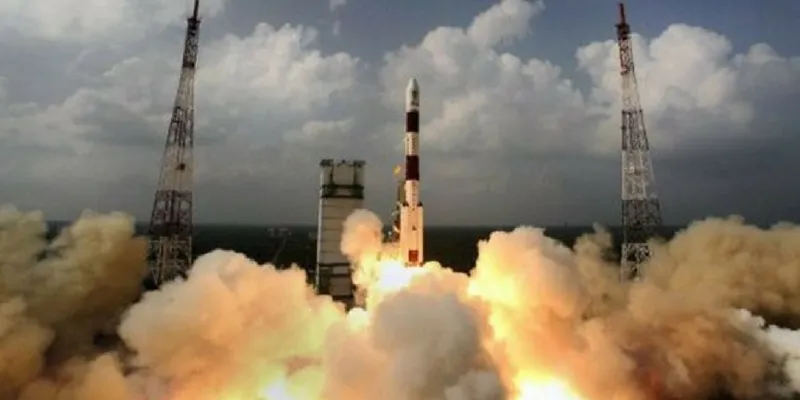South Asian satellite built by ISRO to be launched today, countdown has started
Geosynchronous Satellite Launch Vehicle (GSLV-F09) carrying GSAT-9 or the South Asia satellite designed by the Indian Space Research Organisation (ISRO) will be launched today at 4:57 pm in the evening. Prime Minister Narendra Modi has called it a 'priceless gift' to the neighboring countries. This is in line with the 'neighborhood first policy' and is a unique venture in space diplomacy as the country has decided to 'gift' the satellite to its neighboring countries.

According to the Hindustan Times, Modi said in 2014:
Our dream is that this SAARC satellite will work in the welfare of all our neighbouring countries. And that’s why I have proposed in front of you today that we offer a valuable gift to our SAARC countries through a SAARC satellite launch so that we also become partners in their welfare.
The 28-hour countdown for the launch of the satellite started on Thursday. The satellite is set to be launched today at Satish Dhawan Space Centre in Sriharikota, Andhra Pradesh.
According to the Business Standard, in his monthly radio address 'Mann Ki Baat', Modi said:
The capacities of this satellite and the facilities it provides will go a long way in addressing South Asia's economic and developmental priorities. Natural resources mapping, telemedicine, the field of education, deeper IT connectivity or fostering people-to-people contact, this satellite will prove to be a boon in the progress of the entire region. It is an important step by India to enhance cooperation with the entire South Asia. It is an invaluable gift. This is an appropriate example of our commitment towards South Asia. I welcome all the South Asian countries who have joined us on this momentous endeavour.
It is a geosynchronous communication and meteorology satellite developed for the South Asian Association for Regional Cooperation (SAARC) region. This region comprises eight countries, including Nepal, Bangladesh, India, Pakistan, Afghanistan, Maldives, Sri Lanka, and Bhutan.
A transponder will be given to each South Asian country through which they can create their own programming and there will be a common programming as well. However, each country will have to develop its own ground infrastructure. India will be providing assistance and basic guidelines throughout.
Do you have an interesting story to share? Please write to us at tci@yourstory.com. To stay updated with more positive news, please connect with us on Facebook and Twitter.







